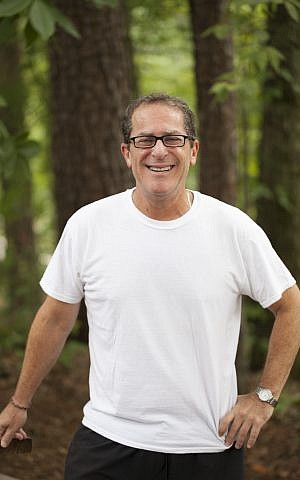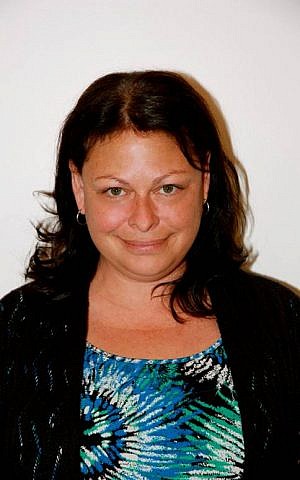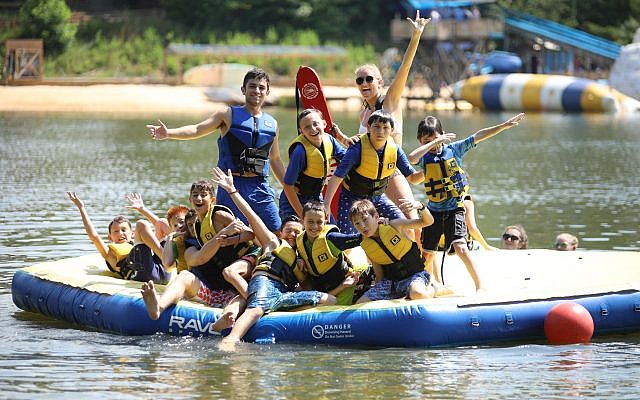Jewish Camp Leaders Talk Staffing Challenges
College students are beginning their internship hunts earlier than ever before. One side effect is that camps are struggling to retain staff members year after year.
It’s a well reported fact that college students begin their internship hunts earlier than ever before. One side effect of that is that many camps, across the country, are struggling to retain staff members year after year.
The AJT spoke to two Jewish camp leaders about the challenges they face in staffing, if they’ve noticed any recent trends that impact their staffs, and the advice they’d offer staff members struggling with decisions about whether or not to return to camp.
Jim Mittenthal – Director, Camp Barney Medintz

Now in his 26th year as director of Camp Barney, Jim Mittenthal has a wealth of experience in staffing. While he doesn’t necessarily feel the same impact that has taken place more nationally, the challenges of competing for the limited time of 17- to 22-year-olds is not a foreign concept to Jewish camps.
“In an ideal world, a child is with us through his or her camper years, and then becomes a really wonderful staff member, and then gets a Ph.D. so they have their summers available for a while,” he joked. “That’s not really realistic.”
He explained that in the past it was often not until after a junior or senior year of college that students would feel the pressure to find experience related to their field of study.
“In the last half dozen years or so, that age has started to lower,” Mittenthal said.
In the interest of keeping his staff informed, Mittenthal communicates with them regularly, sharing articles and blog posts from people who used to work at an overnight camp.
“I don’t want them to think, ‘Am I the first one to suddenly feel a lot of pressure to get an internship?’” he said. “I want them to understand that while, of course medical or lab experience looks good when applying to something like med school, all the other aspects of becoming a wonderfully contributing member of society, I got from camp.”
One key question he likes to ask when helping to advise staff members on their choices is: Where is the pressure coming from? The answer can often inform the kind of advice he can give.
He also tries his best to make camp fit the needs of his staff, even if that means taking on a different role than ordinary.
“I had a staff member who wanted to get a medical internship, but those are often reserved for med school students, … so we talked about him potentially interning in our Marcus Health Center at camp,” he said. “Or for business students — it doesn’t always work out — if I can get them working with our CFO while still at camp, then super!”
Mittenthal added that at some point, staff members will have to move on.
“When you’re done and you feel good about what you’ve contributed to camp, I don’t try to convince you otherwise,” he said. “I’m sad to see you go, but I know they’re ready to enter the community with all these skills that we played a part in developing.”
Amy Smyler McFarland – Associate Director, URJ Camp Coleman

Camp Coleman’s staffing falls squarely on the desk of Associate Director Amy Smyler McFarland, a responsibility in which she takes a lot of pride.
“Staff is everything to a camp,” she said. “If you have a great, well-trained staff then everything will go smoothly. What I look for are people who care about community, love children and are kind. People who live their lives that way tend to also have real life goals, and that’s something we run up against.”
Parents are often pressuring those students to find an internship in their field, and Smyler McFarland recognizes that in many cases, the parents are right, but she also wants to focus staff experience on gaining valuable skills that can translate to opportunities in the future.
Four years ago, Camp Coleman began discussing with staff the skills and values they gain most from the experience.
“When they leave camp at the end of a summer, we send them information on their skill development so that when they go in for an interview, they’re going to be able to speak to those skills, and that will put them above other candidates,” she said.
In addition, she quoted several studies that showed 21st-century skills as being valuable to a lot of companies.
“Those are the skills you learn by doing, not in a classroom,” she said. “They’re exactly the skills that you get at camp.”
She also said that Coleman was working to ensure that the staff experience was professional, because, “it is, we’re not afraid of that label anymore,” she said.
For staff who feel the need to intern in their field, Smyler McFarland said that Coleman alumni have helped with the process.
“We’ve had quite a few staff members over the years who’ve been hooked up by an alum, who allows them to intern in May and August, so that they can still work at camp,” she said.
As for advice for those struggling with their decision, she encourages direct communications. And, just like Mittenthal, she isn’t afraid to bend the traditional camp experience to fit more specifically into what they’re looking to achieve.
“Ask the camp what they can do for you,” she said. “Have an out-of-the-box conversation with the director or hiring manager. We want our young people to get the best of the best, and our staff to get the skills that will really help them down the line.”




comments